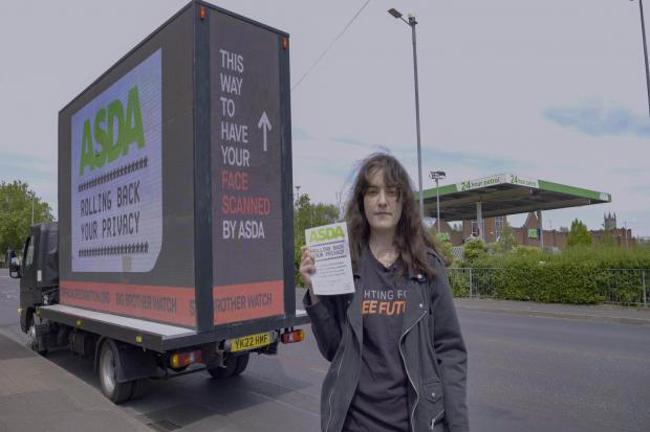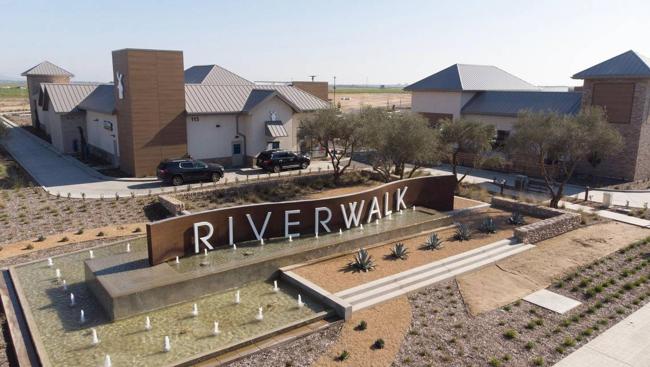Summary
A privacy rights group has filed a legal complaint against Asda over its use of live facial recognition cameras in its supermarkets.
Source: Swindon Advertiser on MSN.com

AI News Q&A (Free Content)
Q1: What prompted the legal complaint against Asda regarding its use of facial recognition cameras in supermarkets?
A1: A privacy rights group filed a legal complaint against Asda due to concerns over the supermarket's implementation of live facial recognition cameras. The group argued that the technology could infringe on customers' privacy by collecting and processing biometric data without sufficient transparency or consent, raising questions about compliance with data protection regulations in the UK.
Q2: How have facial recognition technologies in supermarkets evolved in the past five years, according to scholarly research?
A2: Recent research highlights that facial recognition technology in supermarkets has advanced rapidly, with new systems capable of real-time identification and behavior analysis. Studies such as 'Responsible Facial Recognition and Beyond' (2019) detail the dual aspects—improved security and customer experience versus increased privacy risks. The adoption is accelerating, but regulatory and ethical challenges persist, especially around data bias and misuse.
Q3: What are the main privacy concerns associated with facial recognition in retail settings, and how are they being addressed by recent innovations?
A3: The main privacy concerns include unauthorized collection of biometric data, lack of informed consent, and potential misuse of information. Innovations like the privacy-preserving solution 'Pura' (2025) offer encrypted facial recognition to protect user identities while maintaining system efficiency. However, many experts stress the need for transparent data policies and robust regulatory frameworks to ensure customer rights are upheld.
Q4: Is there evidence of bias in facial recognition systems used in supermarkets, and what does the latest research suggest?
A4: A 2022 study, 'Is Facial Recognition Biased at Near-Infrared Spectrum As Well?', found that while traditional facial recognition systems exhibit demographic biases, systems operating in the near-infrared spectrum show improved equity in recognition accuracy across gender and race. This suggests that technical advancements can help mitigate some bias, but careful dataset selection and evaluation are still essential.
Q5: How are UK supermarkets, including Asda, leveraging technology trends to enhance consumer experience and operational efficiency as of 2024?
A5: UK supermarkets are increasingly adopting AI-driven tools, self-checkout systems, and digital payment solutions. Facial recognition is being tested for age verification and theft prevention, while other trends include personalized promotions and inventory management powered by machine learning. These developments aim to streamline shopping and optimize stock, but also introduce debates on data protection and consumer trust.
Q6: What economic impacts can result from the implementation of facial recognition systems in supermarkets?
A6: Introducing facial recognition systems can potentially reduce theft-related losses and improve operational efficiency, leading to cost savings. However, these systems require significant upfront investment and ongoing maintenance. There is also a risk of customer backlash or regulatory penalties if privacy rights are violated, which could negatively impact brand reputation and revenue.
Q7: What are the recommended regulatory measures to ensure responsible use of facial recognition technology in retail environments?
A7: Experts and regulators recommend that supermarkets obtain explicit customer consent, provide clear information about data usage, and ensure robust safeguards for biometric data. Regular audits, adherence to GDPR principles, and deploying privacy-preserving technologies are crucial steps. Transparency in policy and practices is emphasized to build consumer trust and prevent misuse.
References:
- Is Facial Recognition Biased at Near-Infrared Spectrum As Well?
- BBC News - Asda faces legal complaint over use of facial recognition cameras - https://www.bbc.com/news/technology-68852308
- The Guardian - Supermarket facial recognition controversy - https://www.theguardian.com/technology/2024/mar/12/asda-supermarket-facial-recognition-privacy





